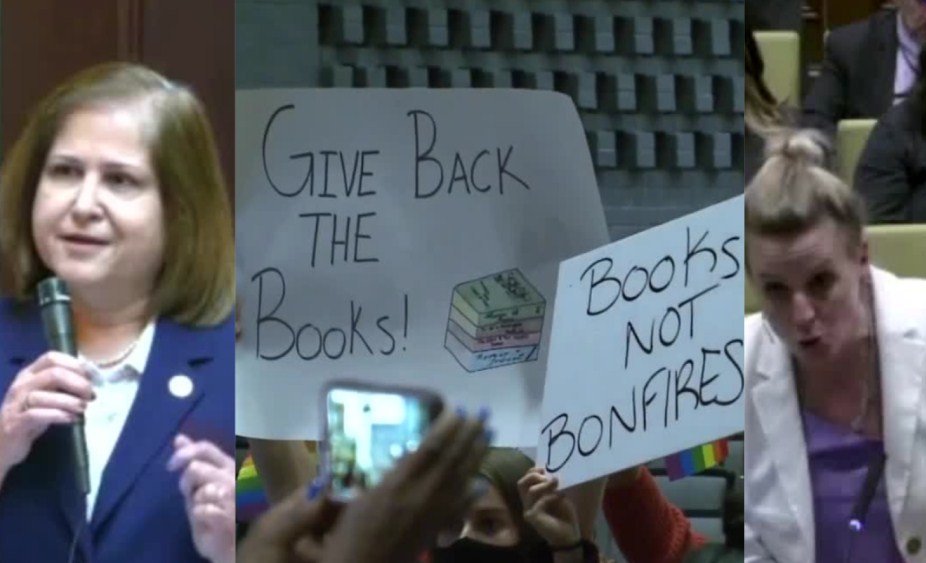Virginia Democrats have introduced a bill that would amend a law that requires schools to notify parents about books that contain sexually explicit material. The bill aims to prevent the law from being used to censor books in public schools.
The current law and its controversy
The current law, which was passed in 2016, requires schools to notify parents if their children are assigned to read books that contain sexually explicit material. The law also allows parents to opt their children out of reading such books and request an alternative assignment.
The law was sponsored by Republican Sen. Siobhan Dunnavant, who said it was intended to protect children from exposure to inappropriate content and to respect parental rights. However, the law has been criticized by some educators, librarians, and civil rights groups, who argue that it could lead to the removal of books that have educational and literary value.
According to the American Library Association, the law has been used to challenge books such as “The Bluest Eye” by Toni Morrison, “The Handmaid’s Tale” by Margaret Atwood, and “Beloved” by Toni Morrison. These books have been deemed as sexually explicit for containing scenes of rape, incest, and violence.

Some critics of the law also say that it could violate the First Amendment rights of students and teachers, and that it could create a chilling effect on the selection of books in schools.
The proposed amendment and its supporters
The bill that would amend the law, SB 1383, was introduced by Democratic Sen. Ghazala Hashmi and Democratic Del. Karrie Delaney. The bill would add a clause to the law that states that it “shall not be construed as requiring or providing for the censoring of books in public elementary and secondary schools.”
The bill’s supporters say that the amendment is necessary to clarify the intent of the law and to prevent it from being misused to ban books that are considered controversial or offensive.
“We want to make sure that our students have access to a diverse and inclusive curriculum that reflects the realities of our society and our history,” Hashmi said. “We don’t want to see books that are deemed as classics or that have won awards being taken off the shelves because of a few passages that some people find objectionable.”
Delaney said that the bill would also protect the academic freedom of teachers and the intellectual freedom of students.
“Teachers should be able to choose the books that they think are best suited for their students’ learning and development, and students should be able to read books that challenge them and broaden their perspectives,” Delaney said. “We don’t want to see a situation where teachers are afraid to assign books that might spark a complaint or a lawsuit, or where students are denied the opportunity to read books that might inspire them or change their lives.”
The opposition and its arguments
The bill that would amend the law has faced opposition from some Republicans and conservative groups, who say that it would weaken the law and undermine the rights of parents.
Republican Sen. Mark Obenshain, who voted for the original law in 2016, said that the amendment is unnecessary and that the law does not censor books.
“The law simply requires that parents be notified if their children are assigned to read books that contain sexually explicit material, and that they have the option to request an alternative assignment,” Obenshain said. “The law does not ban any books, nor does it prevent students from reading any books that they want to read on their own. The law respects the role of parents as the primary educators of their children, and it gives them the ability to make informed decisions about what their children are exposed to in school.”
Victoria Cobb, president of the Family Foundation of Virginia, a conservative advocacy group, said that the amendment would erode the law and that it would open the door for more books that are inappropriate for children.
“The amendment would essentially nullify the law and make it meaningless,” Cobb said. “The amendment would allow schools to assign books that contain graphic and explicit descriptions of sex, violence, and abuse, without any regard for the age or maturity of the students, or the wishes of the parents. The amendment would also send a message that schools can ignore the concerns of parents and that they can impose their own agenda on the students.”
The status and the outlook of the bill
The bill that would amend the law has passed the Senate Education and Health Committee by a vote of 9 to 6, with all Democrats voting in favor and all Republicans voting against. The bill is now awaiting a vote by the full Senate.
The bill’s sponsors are optimistic that the bill will pass the Senate and the House, where Democrats have a majority in both chambers. They also hope that the bill will be signed by Democratic Gov. Ralph Northam, who has expressed support for the bill.
“We believe that this bill is a common-sense and reasonable amendment that will preserve the original intent of the law, while also ensuring that our schools are not places where books are censored or banned,” Hashmi said. “We hope that our colleagues on both sides of the aisle will join us in supporting this bill, and that the governor will sign it into law.”

Comments